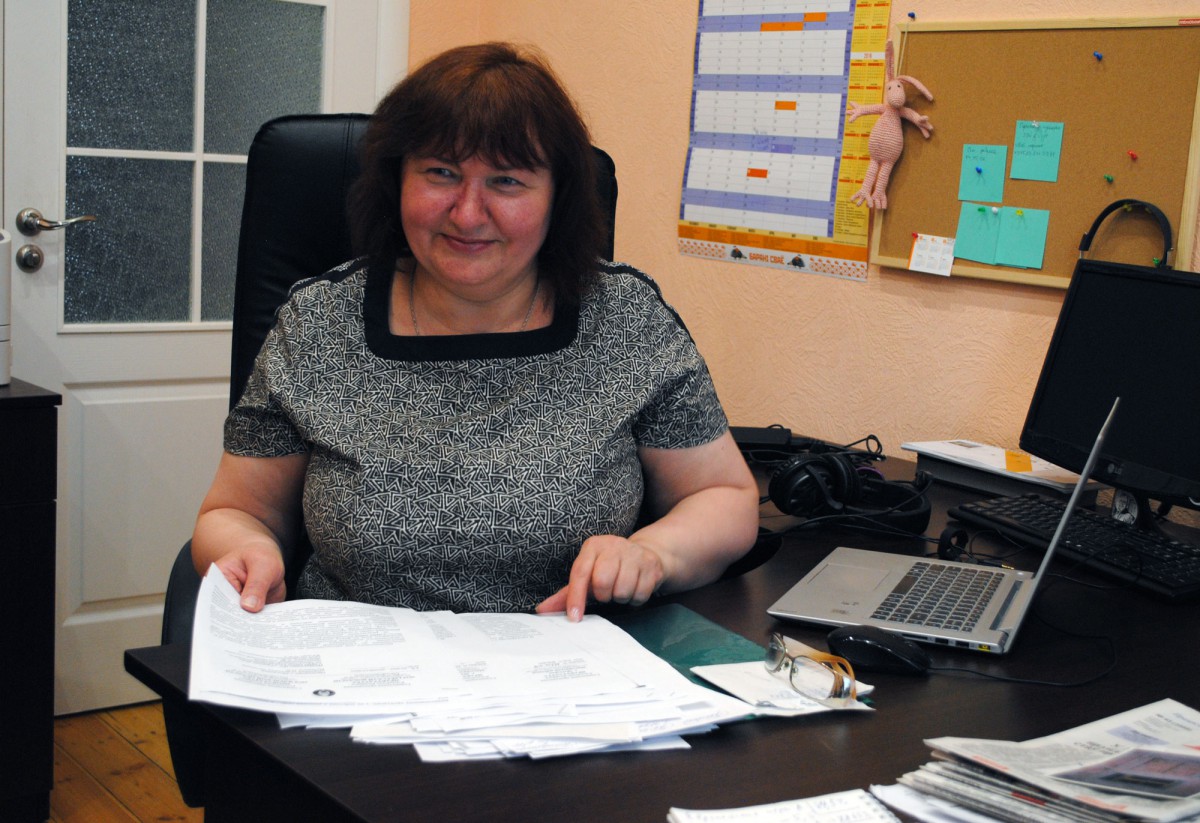Kuchura case: Mahilioŭ authorities go blind to complaints
In a continuous attempt to hide the fact of torture in the Mahilioŭ-based penal colony No. 15, reported by the wife of prisoner Piotr Kuchura, officials of the Investigative Committee and the Prosecutor’s Office brazenly distort the facts in their formal replies to her complaints, arguing that there was no criminal incident in the colony at all.
According to Liudmila Kuchura, her husband has just managed, and with great difficulty, to receive formal replies to his complaints, which arrived at prison No. 4 [there Piotr Kuchura has been held after his sentence was toughened by the court in December 2013 - Ed.] back in March.
The complaints urged the Prosecutor to punish the Mahilioŭ interdistrict department of the Investigative Committee, which failed to open a timely probe into the prisoner’s poisoning with chlorine, which made it impossible to prosecute the perpetrators. But the content of the responses, unfortunately, are not worth the effort of the convicted person and his wife: these are formal replies, which devaluate the essence of their numerous complaints.
“The most surprising answer is that from the Department of the Investigative Committee of the Mahilioŭ region, which said that my statement did not contain information about the indications of a crime. This response deals with a statement submitted by me on 5 November 2013. It is about my husband being tortured with bleach in a punishment cell in penal colony No. 15, about the agony he suffered after that, that he did not receive medication on time, which could lead to death considering his disease. But, oddly enough, the Investigative Committee says that, as it turns out, we did not report about the crime,” says Liudmila Kuchura.
In her first statement of 5 November 2013, she also requested a medical examination to establish the fact of poisoning her husband with chlorine and the consequences of this for his health.
“But the response from the prosecutor ignored the fact that I initially demanded a forensic medical examination. Based on this response, they started acting only when the probe had already begun on the orders of the Prosecutor General and the Investigative Committee, of which I was notified on 28 May 2014. And I think this probe was started after we sent a complaint to the United Nations Human Rights Committee. Because on 16 and 18 May 2014, I received replies from the Mahilioŭ region Investigative Committee’s office and the Prosecutor General saying that there would be no probe, as it had repeatedly been tested and no elements of a crime on the part of prison staff had been established, and suddenly there comes a message that a probe under Article 174 of the CCP was opened,” says the prisoner’s wife.
The question arises: is anyone of the representatives of the Investigative Committee and the Prosecutor's Office willing to admit the prayer of her complaint of 5 November 2013, where everything is comprehensively set out – those responsible for causing harm and the need for a forensic examination.
The Prosecutor of the city of Mahilioŭ says in his response to Piotr Kuchura: “It appears from the materials of the probe that in your body there are no changes in health status, which have a clear causal connection with the events of your stay in the punishment cell of penal colony No. 15 in September 2013, which you and your spouse are referring to in your complaints.” It is alarming that when speaking of Piotr Kuchura’s health the prosecutor avoids the word “examination”, replacing it with an abstract “probe”. Indeed, no medical examination of the victim has been conducted: the prosecutors examined medical records only, not his body.
Both the Investigative Committee and the Prosecutor’s Office say nothing about a message on the impossibility to provide opinion No. 1368A from the Mahilioŭ Regional Department of the State Committee of Forensic Examination, which once again confirms the delay in the probe started by investigator Skavarodkin on 27 May 2014.
“Bioobjects for examination are advisable to be taken in the first hours, sometimes days after exposure to the toxic substance. To establish the fact of the chemical injury it was necessary to make timely sampling of the air in the room in order to establish the concentration of toxic substances (such as chlorine) and a medical examination of the victim,” said the expert.
“Interestingly, during this test they took my husband’s urine and blood on 8 December 2014, and the poisoning was on 19 September 2013. What can remain in the blood and urine after more than a year after the poisoning of the body? And what prevented to make the examination at a time when we asked about this in a statement on 5 November 2013?” says Liudmila Kuchura. “Then we were denied – because I believe that everyone knew it that if a forensic medical examination was carried out, traces of chlorine vapor poisoning in the body would be detected. That is why they gave us refusals to open a criminal case (because of that we had to write to the court) – just to gain time. And the subsequent probe with a forensic "examination" is I believe just fiction.”
As regards the responses received from the Mahilioŭ Prosecutor's Office and the Investigative Committee, the prisoner’s wife says: “None of the question we asked has been answered – water bewitched. I am surprised that these answers were written by lawyers.”
“Everyone wants to hide the crimes committed by employees of penal colony No. 15 in Mahilioŭ, and in this way are trying to hush up the case of torture,” says Liudmila Kuchura, arguing that she will not stop, and intends to continue seeking justice.


















